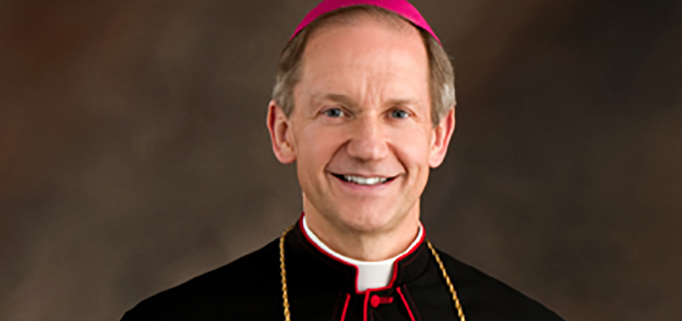Let’s Follow Bishop Paprocki’s Lead
Last week, Bishop Thomas Paprocki of Springfield, Illinois, released a clear, truthful guide on gender identity that does a great service for Catholic schools in his diocese. Catholic educators everywhere should follow his lead in implementing similar policies in their schools.
The timing of the guide could not be better, as society embraces a sorely confused understanding of gender identity. For example, biological males are winning female events in Connecticut high school sports, and high school districts like one in Illinois are allowing biological males to use female locker rooms, and vice versa.
But the Catholic Church’s teaching on gender identity and human sexuality is clear. Catholic school policies should be consistent, as well.
For handling situations of a student facing “gender dysphoria,” Bishop Paprocki’s guide stresses the importance of “gentle and compassionate pastoral skill and concern” and condemns any sort of “discrimination or harsh treatment.”
At the same time, the guide states that sex is determined at birth. The truly loving thing to do in a situation when a person is facing gender dysphoria is to be “clear on the reality of human biology as a gift from God that we cannot change.”
As a result, students at diocesan schools must “use bathrooms and locker rooms that correspond with their biological sex,” and they will be “addressed and referred to with pronouns in accord with their biological sex.”
Thank you, Bishop Paprocki! More than ever, Catholic schools need to teach and witness to the Truth.
The Church’s teaching on human sexuality should be steeped deeply in our Catholic schools. A Christian anthropology should guide classroom learning, student activities and all school policies.
In fact, Catholic schools might consider adopting Human Sexuality Policies, like the ones developed by The Cardinal Newman Society, that go beyond the issue of gender identity. If a school has a firm commitment to forming young people in chastity, then it is clear that the concern is for all students of every stripe, and not targeting certain students as many activists claim.
“As a Catholic institution, we believe that human bodies are gifts from God and temples of the Holy Spirit,” the resource states. “All men and women are called to a life of chastity appropriate to their vocation as single, married, or consecrated religious.”
“Because our efforts at integral formation include the integrity of body, spirit, and moral development, our school has a proper concern for each student’s behavior and development in the complex area of human sexuality,” the resource continues.
The resource offers examples of specific policies related to human sexuality, including addressing athletics, dances, dress code, facilities use, same-sex attraction and more.
In the months ahead, Catholic schools will face even more questions related to human sexuality. Catholic educators must be prepared with responses that are clear and consistent, upholding Church teaching.
Having strong policies in place will help Catholic schools to fend off attacks and legal threats. But even more important is the witness for students — they should learn the Truth about the human person in the classroom and see it lived out.
This article first appeared at The National Catholic Register.

